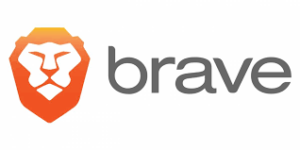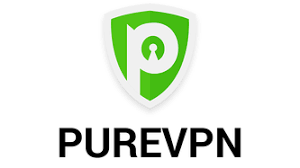
Whether you're living in Spain or anywhere else in the world, online privacy is more important than ever. You don't have to be a conspiracy theorist to know that governments and corporations are spying on you.
This is especially true with any free online product. As they say,
if the service is free, YOU are the productThe good news is, online privacy is not difficult. You just need to get set up with a few tools, and then you barely need to think about it again.
So, here's a guide to some of the tools I use to keep my privacy online.
1. Brave Browser


Brave is a new browser from a kickass team. It's development is being led by Brendan Eich who co-founded the well-known Mozilla before working as CTO and CEO.
It's value proposition is that ads should be opt-in, instead of the other way around as Google demands. This is also means that privacy is the default setting.
Great! So, no ads and privacy. Wait- why would I opt in to ads?
Well, that's where the business model gets a little more tricky...
They have come up with a new consent-based digital advertising model that benefits users, publishers, and advertisers. This is all facilitated through the "Basic Attention Token (BAT)" cryptocurrency.
While still being rolled out, the idea is that advertisers buy adspace by paying with BAT, publishers (ie websites) get a cut of the revenue AND so do users who actually look at the ads.
While crypto can be complicated, Brave has made this simple for the user, by integrated the BAT wallet directly into the browser.
I am using the Brave Browser right now to write this blog post and it works a treat :)
Actually, the best part of the browser is that page loading times are notably faster. By not allowing all the embedded ads and cookies to load, sites load much quicker.
2. Duck Duck Go Browser

The big selling point of the DuckDuckGo browser is privacy. Unlike Google, they do not track or sell your personal data. It's as simple as that.
If you're curious to try out a more experimental project and earn some cryptocurrency, the Presearch browser has just launched. This is still very new so we'll see if it stands the test of time and actually works out. But for now, you can earn a little crypto every time you make an internet search.
3. Pure VPN

As you likely know, a Virtual Private Network (VPN) redirects your internet traffic through another country. This makes it appear as though you are there and greatly increases the privacy/anonymity of your online activity.
While some people say, "why do you need privacy, if you have nothing to hide?", I disagree completely. We ALL need privacy, as a human right, including online privacy.
Online privacy should be the norm, not the exception. We shouldn't need Edward Snowdens and Jualian Assanges. But unfortunately, spying and selling our data is the status quo. So we need to take extra measures to ensure our privacy, even if we have nothing particular to hide. VPNs are one of the key tools for this.
There are many out there. I recommend Pure VPN. Having server's in all continents ensures webpages load ultrafast, and their rates are lower than many other VPN service providers. Finally, Pure VPN consistently receives excellent reviews across the industry and does not keep a log of your online activity.
4. Bitcoin


I hope you're heard of Bitcoin. Actually, I hope you own some Bitcoin already. It is the future. Bitcoin gives online privacy for money.
Imagine a world where your money was truly YOUR money. Not a promisory note from a government for a fiat currency that would inflate away in value only to be replaced by another such currency some 30- 4o years later.
Imagine that money was private, borderless, open, censorship resistant, and secured by a worldwide decentralized network of computers that no government or company could take down. (Theoretically unviable and with a proven track record of 10 years, which is better than Visa or Mastercard).
Okay, I could talk all day about how I love Bitcoin and I think we should all use it. I already make transactions with it when possible, and pay friends this way. In case you haven't got any yet, buy your first Bitcoin here (you can buy fractions, not just whole coins).
And read my post about how Cryptocurrency is the Future here.
5. TOR

Finally, I must mention TOR.
TOR stands for The Onion Router, and it's like many VPNs connected together in layers like an onion. It affords extreme online privacy because each layer of the onion can only see one layer either side of it. This means that each routing layer passes packets of internet data without knowing where it's coming from or where it's ultimately going to.
Honestly, while this is cool. It does require you to download the TOR browser which is slow in my experience. That's understandable considering all the hops around the world that your data makes. So really, I only think it's necessary if you're really serious about online privacy, like actually doing something illegal that your really need to hide.
That's it guys. My quick rundown on the top 5 technologies for online privacy.
Posted from my blog with SteemPress : https://spainsecrets.com/online-privacy/